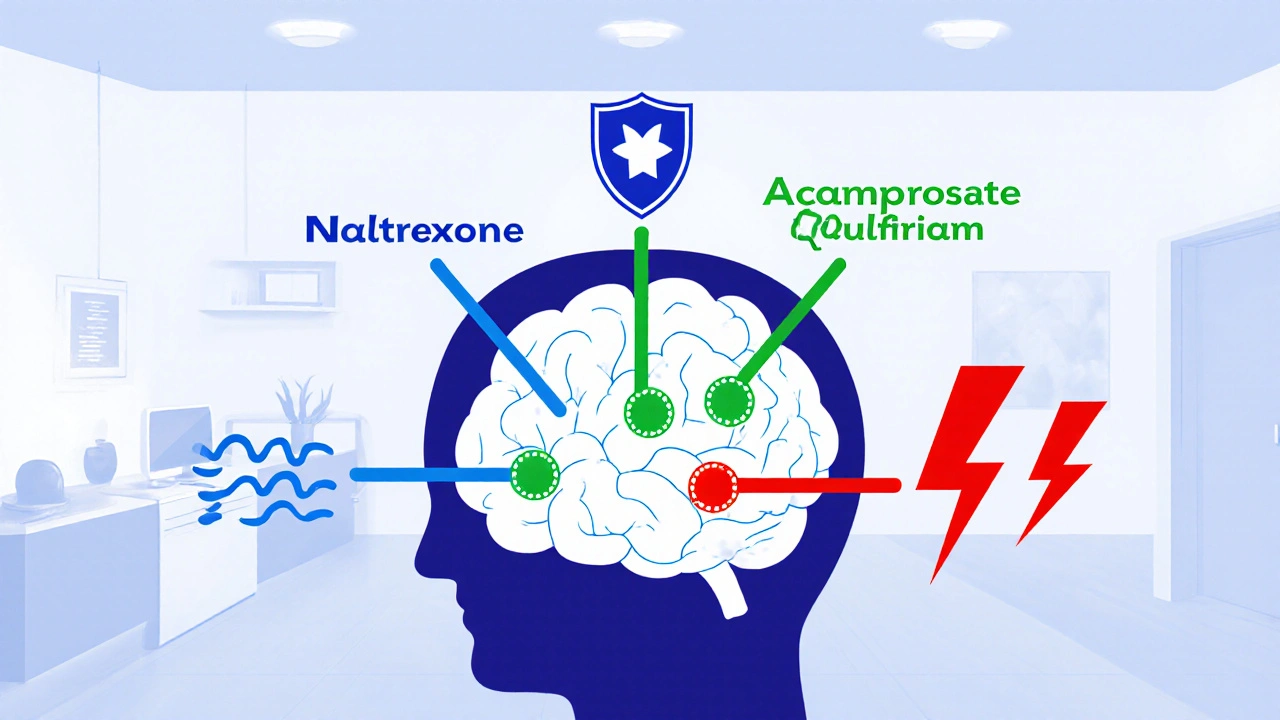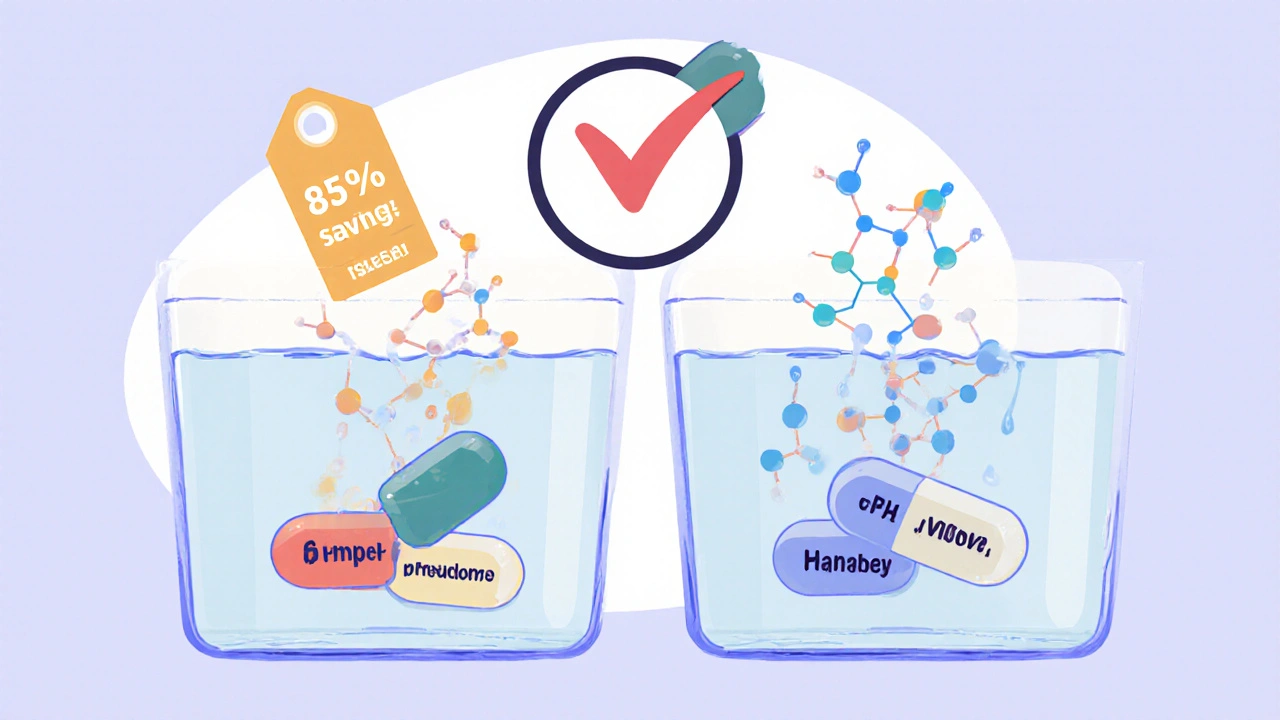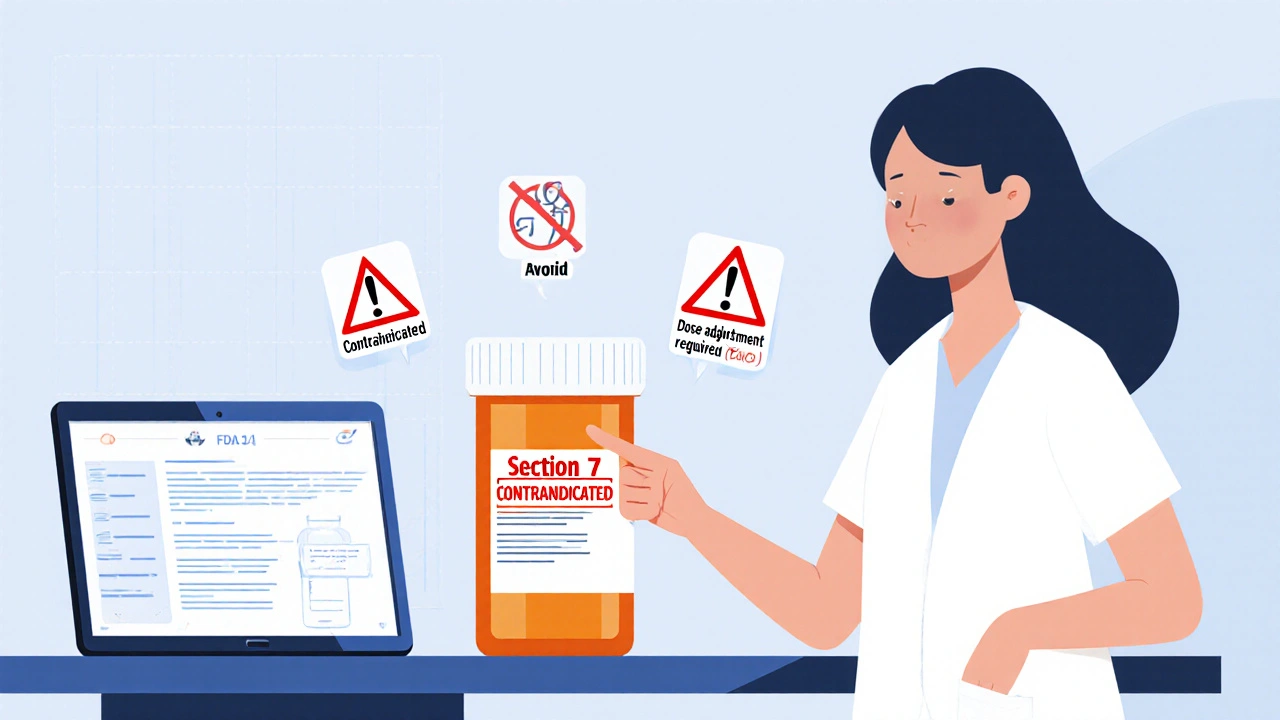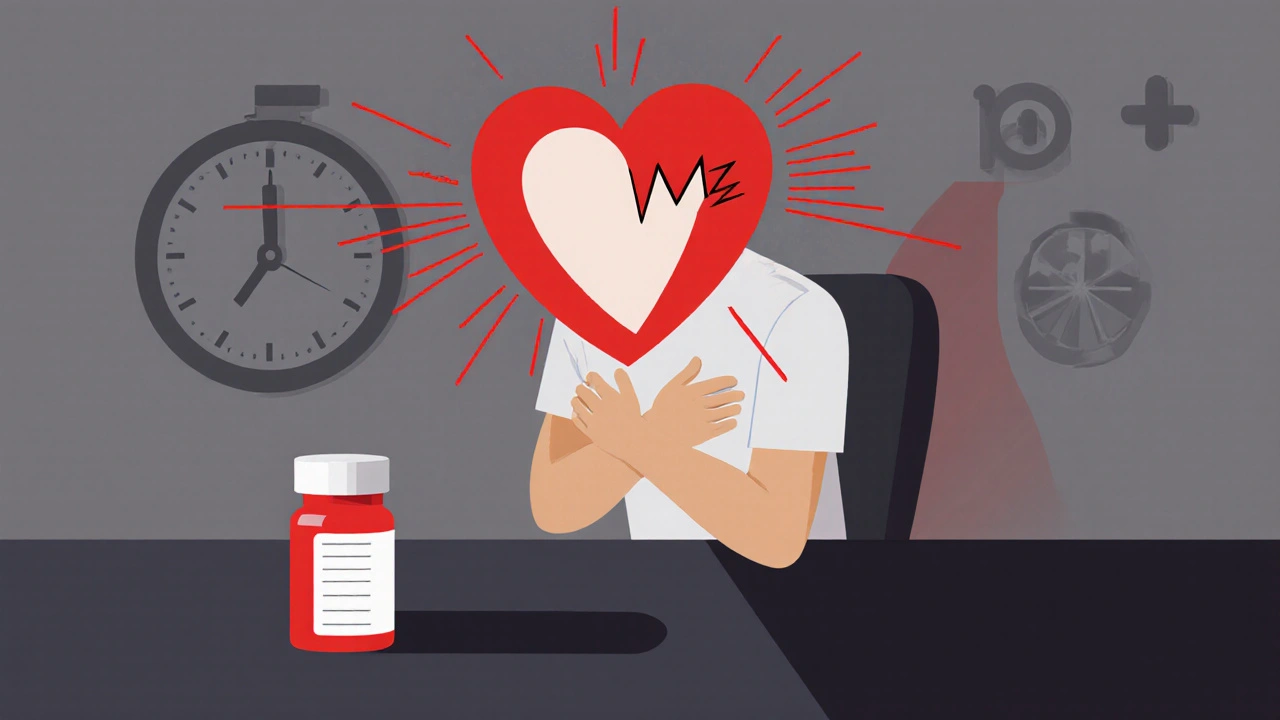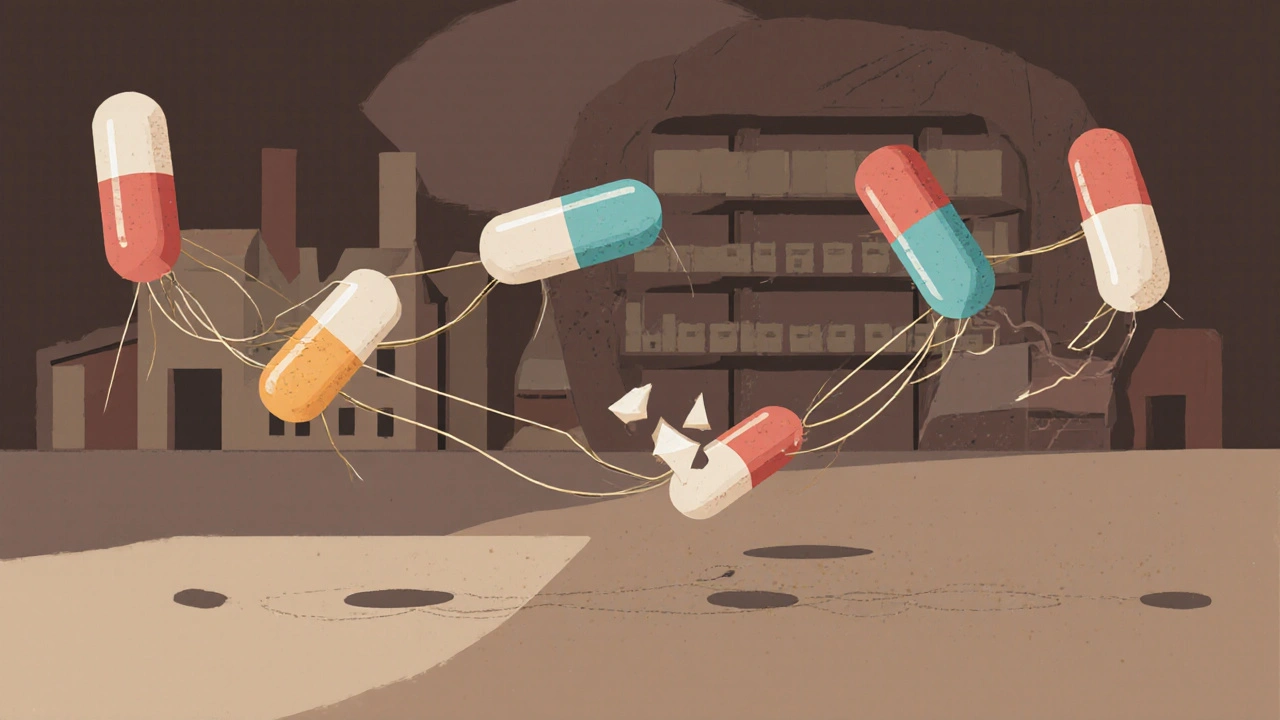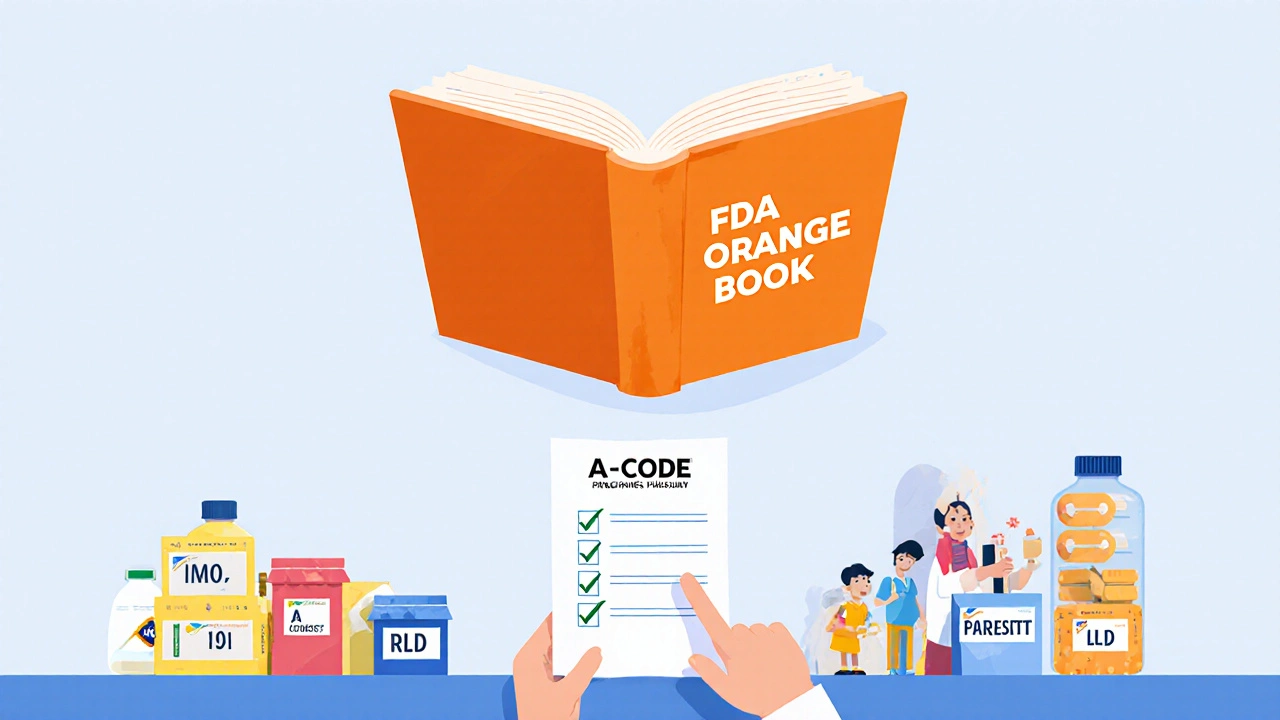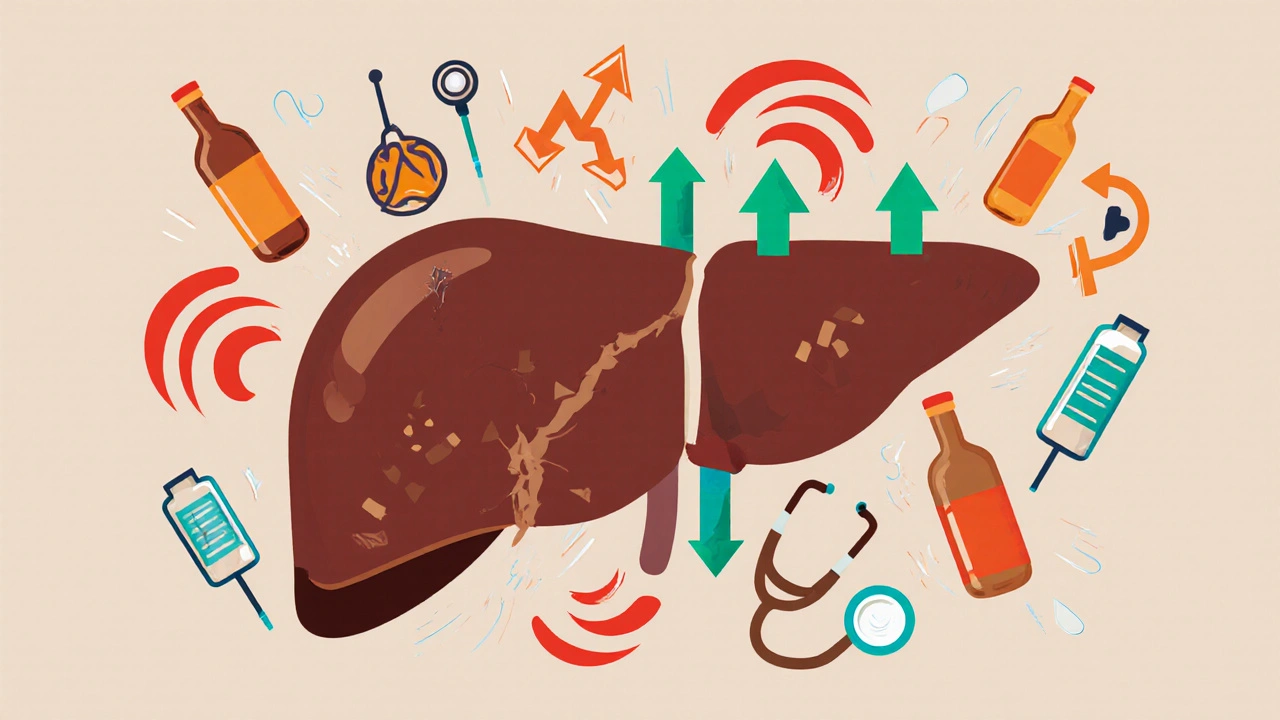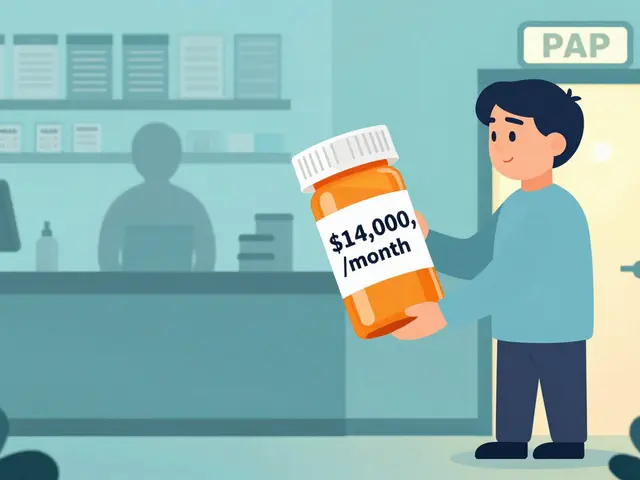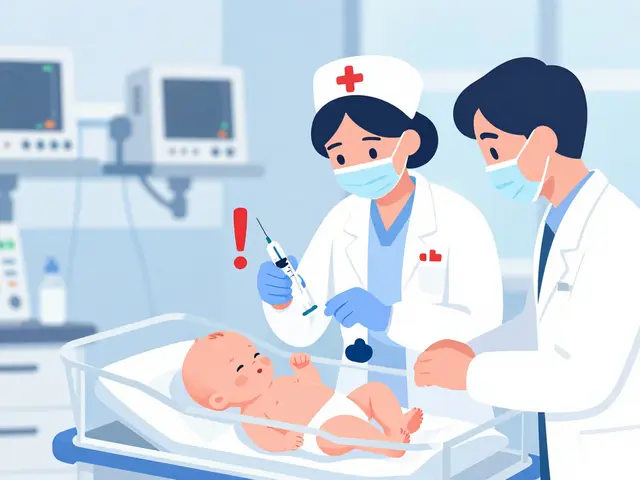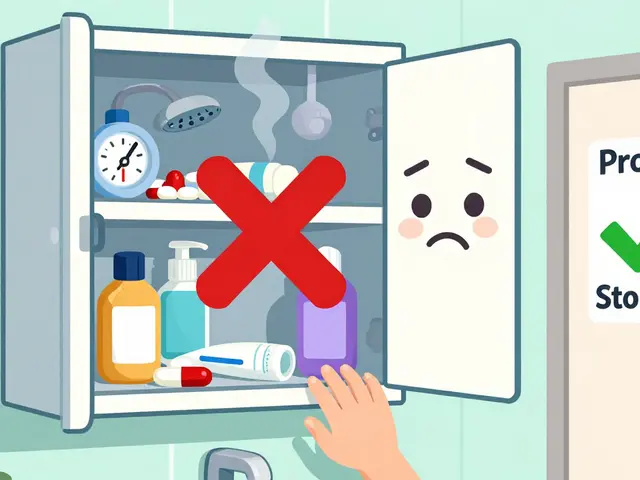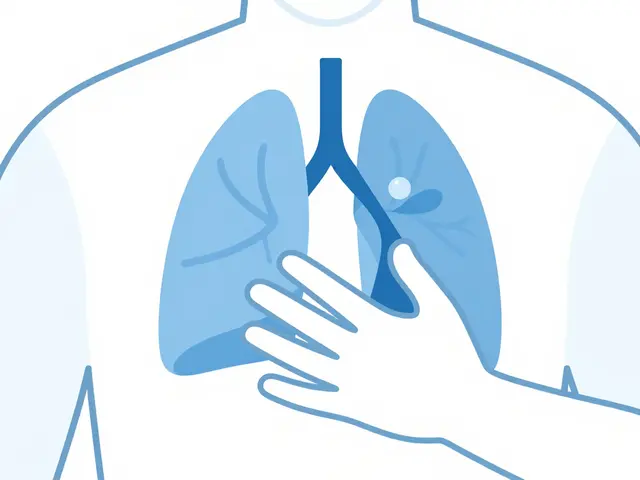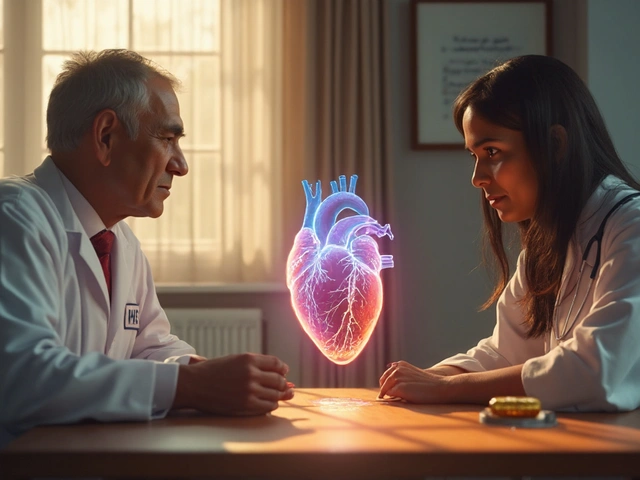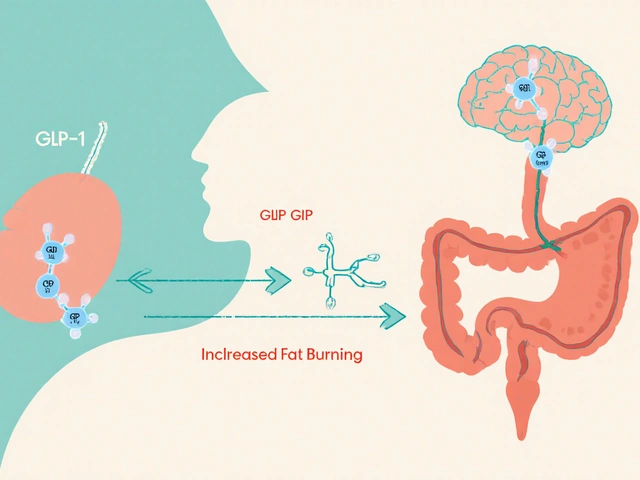TL-Pharmacy: Your Trusted Source of Quality Pharmaceuticals - Page 7
OTC Topical Pain Relievers: Creams, Gels, and Patches Safety Guide
Learn the real risks and safe usage tips for OTC topical pain relievers like creams, gels, and patches. Avoid burns, lidocaine overdose, and hidden dangers with expert-backed advice.
Medications for Alcohol Use Disorder: How They Reduce Relapse Risk - and When They Don’t
Naltrexone, acamprosate, and disulfiram can reduce relapse risk in Alcohol Use Disorder - but only if used correctly. Learn how they work, who they help, and why so few people get them.
MedlinePlus Drug Information: Consumer-Friendly Safety Summaries
MedlinePlus Drug Information offers free, trustworthy, plain-language safety summaries for prescription drugs, OTC meds, and supplements. Created by the U.S. National Library of Medicine, it’s a no-ad, no-cost resource trusted by patients and professionals alike.
Generic vs. Brand Name Drugs: What You Need to Know About Bioequivalence and Cost Savings
Generic drugs are just as effective as brand-name versions, saving patients up to 85% on medication costs. Learn how bioequivalence testing ensures safety and when to watch for subtle differences.
How to Read Drug Interaction Tables in FDA Labels Like a Pro
Learn how to read FDA drug interaction tables to prevent dangerous medication combinations. Understand Section 7, Section 2, and Section 12 to make safer prescribing decisions.
Early Warning Signs of Dangerous Medication Side Effects: What to Watch For
Learn the early warning signs of dangerous medication side effects that could save your life. From breathing trouble to jaundice, know when to act fast and what to do next.
Supply Chain Economics: How Efficiency Drives Generic Drug Distribution
Generic drug distribution survives on razor-thin margins, but efficiency isn't just about cost-cutting-it's about preventing life-threatening shortages. Learn how data, technology, and smarter inventory are reshaping the system.
FDA Orange Book: How Approved Generic Drugs Are Listed
The FDA Orange Book lists approved generic drugs and shows which ones are therapeutically equivalent to brand-name drugs. It's the official guide for pharmacists, insurers, and patients to understand drug substitution rules.
Black Box Warnings: What You Need to Know About the FDA’s Strongest Drug Safety Alerts
Black box warnings are the FDA's strongest safety alerts for prescription drugs, signaling life-threatening risks. Learn what they mean, how they're decided, and what to do if your medication has one.
Alcohol Withdrawal and Liver Health: Safe Detox Strategies
Learn how to safely detox from alcohol while protecting your liver. Discover the risks of quitting alone, why paracetamol is dangerous after withdrawal, and how nutrition and medical care help your liver heal.

